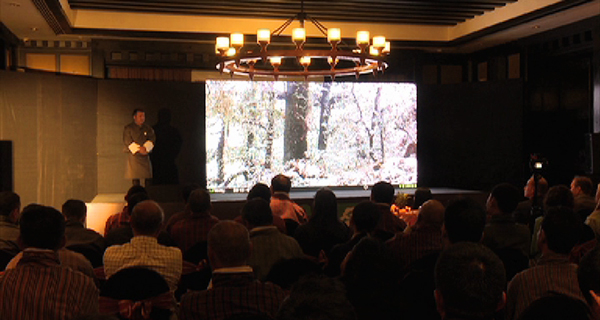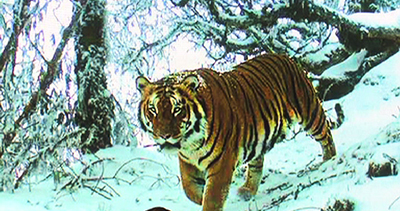 While poaching of wild animals for commercial and wildlife trafficking is not a major issue in the country, tigers are said to be killed due to human-wildlife conflicts. According to a lead biologist, killing of tigers due to human-wildlife conflict is increasing due to change in the thoughts of people.
While poaching of wild animals for commercial and wildlife trafficking is not a major issue in the country, tigers are said to be killed due to human-wildlife conflicts. According to a lead biologist, killing of tigers due to human-wildlife conflict is increasing due to change in the thoughts of people.
In the past, Bhutanese refrained from killing tigers due to religious sentiments. This, however, is now said to be changing.
Although Bhutanese have learned to live alongside tigers, leading biologist Dr Tshering Tempa says Human-wildlife conflict is threatening the tiger population. During his presentation titled “Tigerscapes: the Promised Land for tigers,” tigers in Bhutan constitute 3 per cent of the global tiger population.
“Whether the human-wildlife conflict increases or decreases, I feel it is because of the reporting systems as our people have always learnt to live with the environment. But now we have those media with their stories and suddenly we start telling them that their life is marginalized because there is human-wildlife conflict. In the first place we Bhutanese are very tolerant because they have always associated this with supernatural powers. But now we have new thoughts in the society that tigers are undermining the livelihood,” said Dr Tshering Tempa, the Program Director for Global Tiger Center at Gelegphu.
 He also said growing population and other developmental activities are threatening the long-time survival and viability of the tigers. However, he says there is one landscape in the region with less human settlements called the Tigerscapes. He says this is the largest intact forest that offers hope for tigers. Dr Tempa made his presentation at Bhutan Lectures on Innovation, Science and Society (BLISS) event held in Thimphu recently.
He also said growing population and other developmental activities are threatening the long-time survival and viability of the tigers. However, he says there is one landscape in the region with less human settlements called the Tigerscapes. He says this is the largest intact forest that offers hope for tigers. Dr Tempa made his presentation at Bhutan Lectures on Innovation, Science and Society (BLISS) event held in Thimphu recently.
Similarly, Lyonpo Om Pradhan shared his reminiscences on the Forest Act of Bhutan 1969. Lyonpo shared that the act was drafted as a result of the impact on forests that were seen during the construction of the country’s first roads.
BLISS is a public benefit event that was initiated after recognizing the lack of awareness among the average Bhutanese on the various innovative and transformative efforts and policy initiatives. The event was organized by the Bhutan Ecological Society.
Kinley Dem





